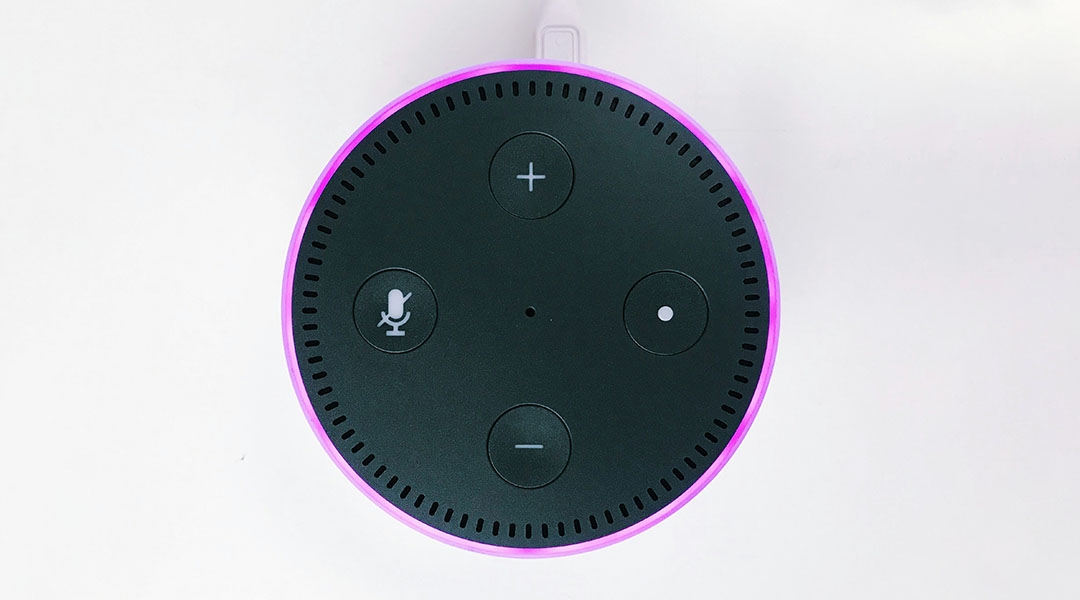In the age of digitalization, with people more connected than ever, it can be surprising to find that loneliness is rampant on epidemic levels. To help solve this, researchers are exploring how voice assisted technologies could help alleviate this burden, especially among the elderly who report the highest levels of loneliness among all age groups.
But do these technologies offer an appropriate level of companionship? “Our findings suggest that voice assistants could become important tools in promoting the well-being of older adults, especially in addressing loneliness — a widespread issue with serious physical and mental health implications,” explained Elena Castro, a researcher in health psychology and technology at Universitat Oberta de Catalunya in Barcelona, Spain.
“But their current capabilities remain somewhat limited, [specifically] in their ability to maintain natural and emotionally adaptive conversations,” she continued.
In addition to exploring their effectiveness — before healthcare professionals or policymakers might be advised to implement their use — Castro also argues there are risks associated with data protection and ethical concerns that need to be carefully considered.
A loneliness pandemic
The WHO estimates that up to a third of adults in the Americas, Europe, and China experience loneliness — a factor linked to cognitive decline and greater risk of mortality.
Traditional efforts to combat loneliness usually involve boosting social skills and encouraging more face-to-face interactions, but these aren’t always practical, especially for those in remote areas or with social anxiety. AI technology presents a new solution, with tools like conversational chatbots and social robots.
Of these technologies, Castro and her colleagues were interested in voice assistants. “Unlike other devices, voice assistants work with voice commands, making them easier to use for people who have physical limitations or find other technologies difficult,” explained Castro.
Voice assistants come in two types: embodied or disembodied. Embodied options may have a virtual face or body, enabling real time interactions and the ability to pick up on non-verbal cues. Disembodied variations communicate only through text or voice.
Since the early 2020s, popular commercial options such as Amazon Alexa, Apple Siri, and Google Assistant have become increasingly common in households, with digital voice assistants forecasted to reach over 8 billion units by 2024 .
With the technology developing and becoming more easily accessible, Castro and her colleagues wanted to investigate the evidence behind the growing belief that this technology can help alleviate loneliness, especially in older adults.
The real challenge lies in the fact that loneliness is a deeply personal experience that is hard to measure. More than that the studies varied widely, making it tough to draw direct comparisons, and this lack of standardization adds another layer of complexity to understanding whether technology can effectively address the issue.
However, the researchers took a proactive approach and did their best to standardize them, specifying criteria studies needed to meet to be included. This methodical effort not only illuminated the discrepancies among the studies but also provided a clearer path toward understanding how technology might effectively address the problem.
Do they truly help?
The team report that while almost 85% of the thirteen studies included in their analysis, this should be interpreted with caution. “When interpreting these results, we must be cautious due to the limited number of studies and their methodological diversity,” they wrote in their paper. “This conditions the generalization of the findings and limits the ability to draw definitive conclusions, highlighting the need for future research with more uniform and rigorous criteria.”
As the technology develops, and Castro’s study points toward potential benefits rooted in some evidence, higher quality proof and more extensive data gathering is required to truly understand the benefits of voice assistants.
While the data are promising, there are still risks to using this technology that need to be considered and communicated clearly to its users. “Privacy concerns are a major issue,” explained Castro. “Voice assistants rely on constant listening and data collection to function, which means they gather sensitive information about users’ habits, preferences, and even health conditions.”
“For older adults, who may be less familiar with digital privacy practices, there is a risk of unintentional data exposure or misuse,” she continued. “Ensuring that privacy is protected, and that users fully understand how their data is being used, is critical to maintaining trust in these technologies.”
Anotherrisk is that elderly users become overly dependent on these technologies and battle to function without them, affecting their ability to adapt to life without one and possibly making them more vulnerable. Additionally, they may withdraw from meaningful human social interactions, potentially becoming less tolerant of human interactions.
“It’s important to ensure that voice assistants complement, rather than replace, real human connections,” says Castro. “For example, they can remind older adults to make calls, set up video calls, or send messages, promoting direct communication with family and friends. Additionally, voice assistants can encourage participation in social events or activities by providing reminders about local gatherings or community events, helping to foster real-world interactions. In this way, they serve as a bridge to social engagement rather than a substitute for it.”
Some ethical considerations
Another issue is the ethical concerns around a concept known as anthropomorphism — giving human traits to non-human entities. Another study on this topic found that the lonelier an elderly person is, the more likely they were to view the voice assistant as a human.
“This raises questions about whether it is ethical to encourage emotional bonds with machines that, ultimately, cannot reciprocate human emotions,” said Castro. “Ensuring that users understand the limitations of voice assistants is vital to preventing emotional misunderstandings.”
Other concerns regarding accessibility of the tools in terms of digital literacy and who can afford them also require addressing. And if these technologies are to be effective, the researchers say training on their use is needed, as well as tailoring their features and functionalities to individual preferences.
Ultimately, Castro believes the benefits outweigh the risk. “Particularly when voice assistants are used as a complementary tool to enhance the daily lives of older adults […] with a balanced approach, these devices can enrich the social lives of older adults, keeping them connected and engaged without the risks of technological isolation,” she noted.
The field is fraught with uncertainty, and we need more robust studies to fully grasp the impact of voice assistants on reducing loneliness. Yet, for those grappling with profound isolation, voice assistant technologies may provide a crucial lifeline, offering a semblance of companionship and a boost to psychological well-being. This potential benefit, however, must be weighed against the ethical risks and concerns surrounding their use.
In the future, says Castro, these technologies could find application outside the home, being integrated into healthcare and rehabilitation programs as part of broader efforts to improve mental health and quality of life.
“They could assist not only with practical daily tasks, but also serve as conversation partners, reminders for medication, and provide tailored information to meet the unique needs of older adults. Our research points to the potential for these devices to be part of public health strategies aimed at reducing loneliness and enhancing support for aging populations,” she said.
Reference: Castro, E., et al., Voice assistants’ influence on loneliness in older adults: a systematic review, Disability and Rehabilitation: Assistive Technology (2024). DOI: 10.1080/17483107.2024.2397030
Feature image credit: Jan Antonin Kolar on Unsplash














